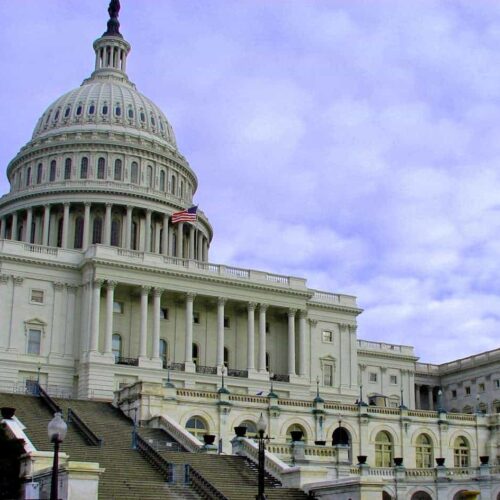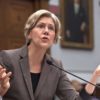Introduction
The Dodd-Frank reform law marks its one-year anniversary Thursday amid a growing drumbeat by Republican lawmakers and banking groups to undo at least some of its stricter financial regulations.
The lobbying push has others questioning whether the tightened regulatory measures that helped stabilize Wall Street will still be in place when the next crisis hits.
The Republican-led House is entertaining two dozen bills which seek to dismantle various parts of the law that was passed last summer to prevent a repeat of the 2008 near-collapse of U.S. housing and financial markets, according to the New York Times. Business groups complain that new regulations stifle U.S. economic growth, while banks claim tougher rules gives their overseas competitors an advantage.
Lawmakers have taken more indirect shots at the law as well, with Senate Republicans vowing to stop the nomination of key regulators and to slash the budgets for regulatory bodies such as the Commodity Futures Trading Commission (CFTC) and Consumer Financial Protection Bureau (CFPB).
President Barack Obama said he remains committed to financial reform.
“The financial crisis and the recession were not the result of normal economic cycles or just a run of bad luck,” Obama said Monday in introducing his nominee, Richard Cordray, to head the CFPB. “There were abuses and there was a lack of smart regulations. So we’re not just going to shrug our shoulders and hope it doesn’t happen again.”
But critics and supporters of Dodd-Frank alike bemoan the missed and postponed deadlines for finalizing rules, which they say creates uncertainty in the marketplace. The CFTC, for example, is charged with overseeing the $600 trillion global derivatives market but has delayed some rules until December.
CFTC Chairman Gary Gensler acknowledged that the regulatory limbo puts markets at risk. “Until the CFTC completes its rule-writing process and implements and enforces these new rules, the public remains unprotected,” Gensler said Monday during a meeting of the new Financial Stability Oversight Council.
Republican Frank Lucas of Oklahoma, chairman of the House Agriculture Committee, said today that his committee plans legislation to slow some provisions of the law. The panel oversees the CFTC, which is designated as the primary regulator of derivatives.
“I am not here to tell you that we need to repeal Dodd-Frank,” Lucas told a business group meeting, according to The Hill. “But I am here to tell you that we need to make some changes.”
“There is an army of lobbyists and lawyers right now working to water down the protections and the reforms that we passed,” Obama said. “They’ve got allies in Congress who are trying to undo the progress that we’ve made.”
“We’re not going to let that happen.”
$50 billion bank cushion – Bank of America Corp. may have to boost its capital cushion by a whopping $50 billion to account for mortgage losses.
Chief Executive Officer Brian Moynihan had pledged to raise the bank’s dividend, but expenses related to soured home loans may total $20.4 billion in the second quarter and slow the bank from meeting new international capital standards, Bloomberg reported.
“They are likely to be in capital-building mode for longer than previously anticipated,” said Jason Goldberg, a Barclays Capital analyst. He estimated Bank of America needs to raise $50 billion to comply with new capital requirements designed to build a buffer against losses and avert another financial crisis.
Who is Richard Cordray? –Richard Cordray, the ex-Ohio attorney general and five-time Jeopardy champion nominated to head the Consumer Financial Protection Bureau, is relatively unknown to most Americans.
To help build out a clearer picture of him, Time magazine selected some recent quotes from Cordray. In his own words, Cordray has expressed “a belief here that Wall Street is a fixed casino” and hopes that the CFPB will “weed out the bad actors.” He is a “strong ally of Warren’s, which will help placate those who believed that she was best qualified to lead an agency she conceived.
Meanwhile, bankers and consumer groups describe Cordray as either a “regulatory zealot” or “a national leader.”
What’s next for Warren – Elizabeth Warren may try to unseat Sen. Scott Brown, a Massachusetts Republican, now that the Obama administration has given up trying to make her the director of the Consumer Financial Protecton Bureau.
While liberal activists believe the Harvard law professor could raise the money and support needed to successfully challenge Brown, Warren has yet to decide on her political future. A close aide to Warren told The Boston Globe that she will begin considering her political prospects in early August after spending time with her grandchildren.
“Massachusetts does beckon in the sense that it’s my home and I need to go home,’’ Warren told MSNBC on Monday. “I’ll do more thinking then, but I need to do that thinking not from Washington; I need to go home.’’
Read more in Inequality, Opportunity and Poverty
Finance
Dueling op-eds capture Democratic, GOP views of year-old financial reform law
Your Wall Street reform reading list for today





Join the conversation
Show Comments